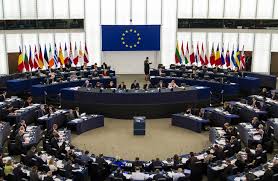
On March 22, the European Council (heads of the European Union’s member states) called for resuming efforts to adopt a regulation aimed at opening procurement markets of third countries, in particular China. This post outlines the proposed measure, contrasts it with the U.S. procurement ban on goods and services from countries with closed procurement markets and questions the likely effectiveness of the proposal.
Since 2012, the EU has been considering a regulation that it could use as leverage to open foreign procurement markets. Its initial proposal would have allowed the EU to close its public procurement to countries that did not reciprocate with access to their procurement markets. However, faced with resistance from certain member states, the European Commission modified the proposal in 2016.
The revised International Procurement Instrument (IPI) would authorize the Commission to conduct an investigation to determine whether a foreign country maintained barriers to its procurement market. If it found discrimination or restrictions, the Commission would seek negotiations with the offending country. Unless the third country agreed to open its procurement, the EU could impose price penalties on its suppliers when (and if) they participate in EU procurement. The penalty could add up to 20% to the price of the foreign supplier’s bid. However, if the bid were still the most competitive despite the price penalty, the foreign supplier could be awarded the contract.
Since the revision of the IPI three years ago, it has been subject to some consideration by the European Parliament but has otherwise appeared largely dormant. However, in EU preparations for a summit with China in early April, the proposed IPI has been revived. The European Commission recommended adoption of the procurement regulation by the European Parliament and the Council before the end of 2019 in order “to promote reciprocity and open up procurement opportunities in China”.
The EU proposal shares the aim of the U.S. Trade Agreements Act of 1979 (TAA) of providing leverage to open foreign procurement markets. However, the U.S. law is arguably more effective as it bans purchases from countries with closed procurement markets.
The TAA prohibits federal agencies from buying goods or services covered by the GPA from any country that has not committed under the WTO Government Procurement Agreement or other trade agreement to provide reciprocal competitive opportunities to U.S. goods and services. The law provides exceptions for least-developed countries (LDCs) designated by the U.S. Trade Representative and where eligible goods or services are not available. It is implemented through the Federal Acquisition Regulation, which includes a list of countries with trade agreements with the U.S. and designated LDCs. If a country is not on the list, the contracting officer cannot award a contract for its goods or services, except where no other good or service is available.
It is questionable whether the EU's proposed procurement instrument would provide sufficient leverage for a third country to remove barriers to participation in its procurement. The EU process, including a Commission investigation, would not be a quick solution. Moreover, it would only apply if a third country's suppliers sought participation in EU procurement. The effect of the penalties may be undermined by the possibility that a bid subject to a price penalty could still be deemed the winning bid if were the most competitive.
As discussed in an earlier post, a stronger EU measure such as its original proposal that would block China’s (or other third country’s) access to EU procurement until it opened its own market would likely be more effective.
Jean Heilman Grier
March 27, 2019
Related Posts
EU: Penalizing Closed Procurement Markets
Trade Agreements Act of 1979: Broad Authority, Narrow Application

